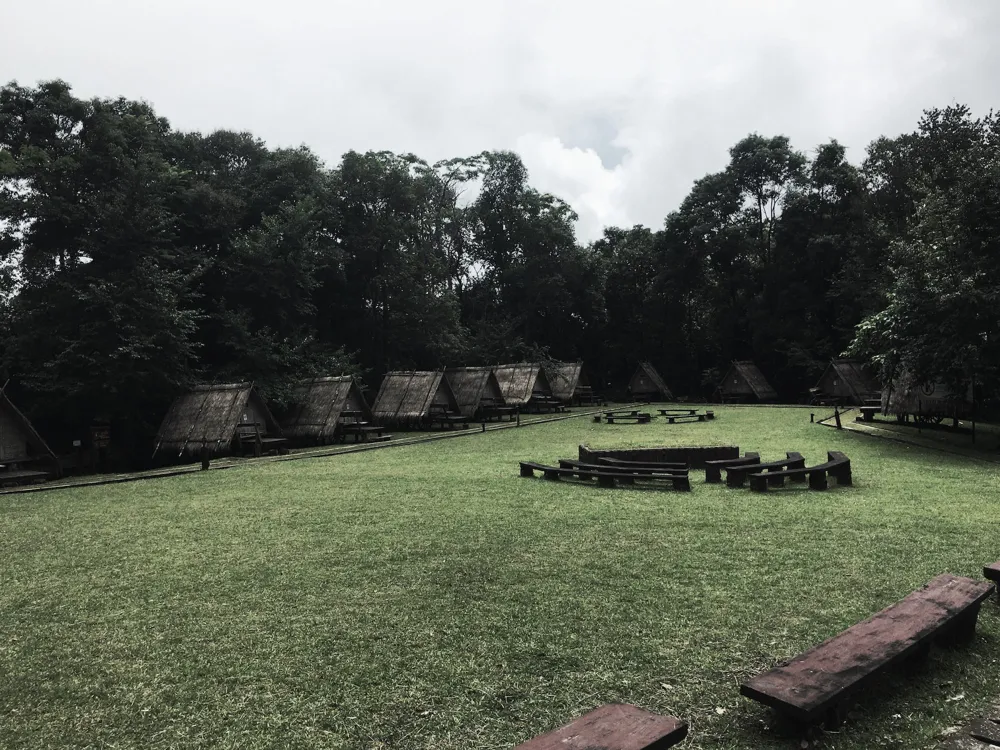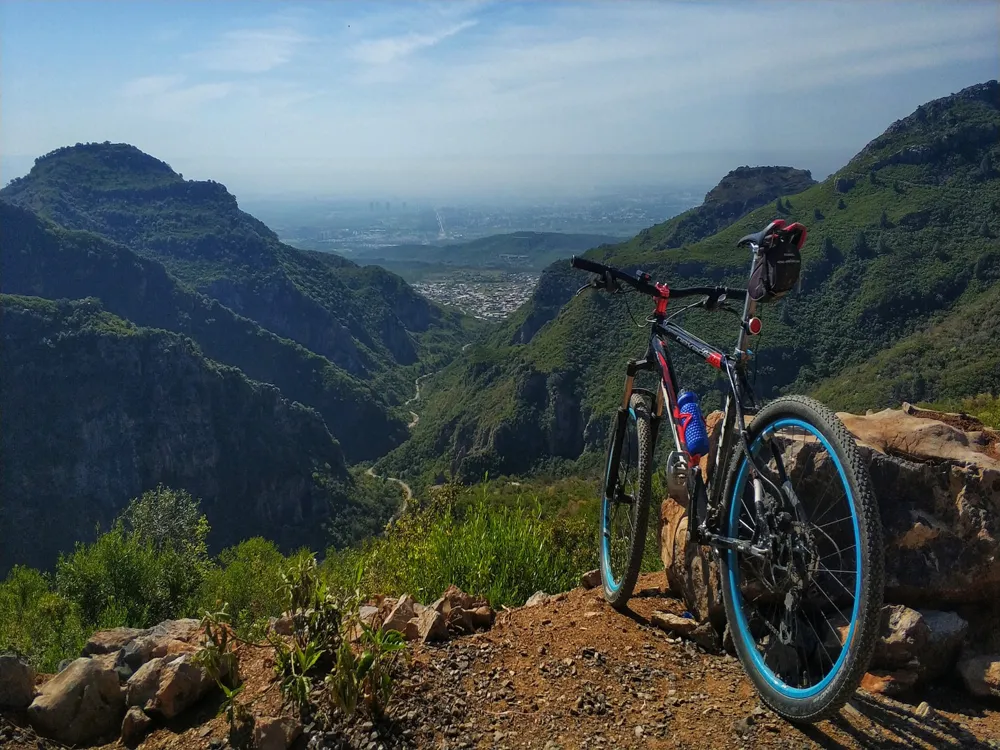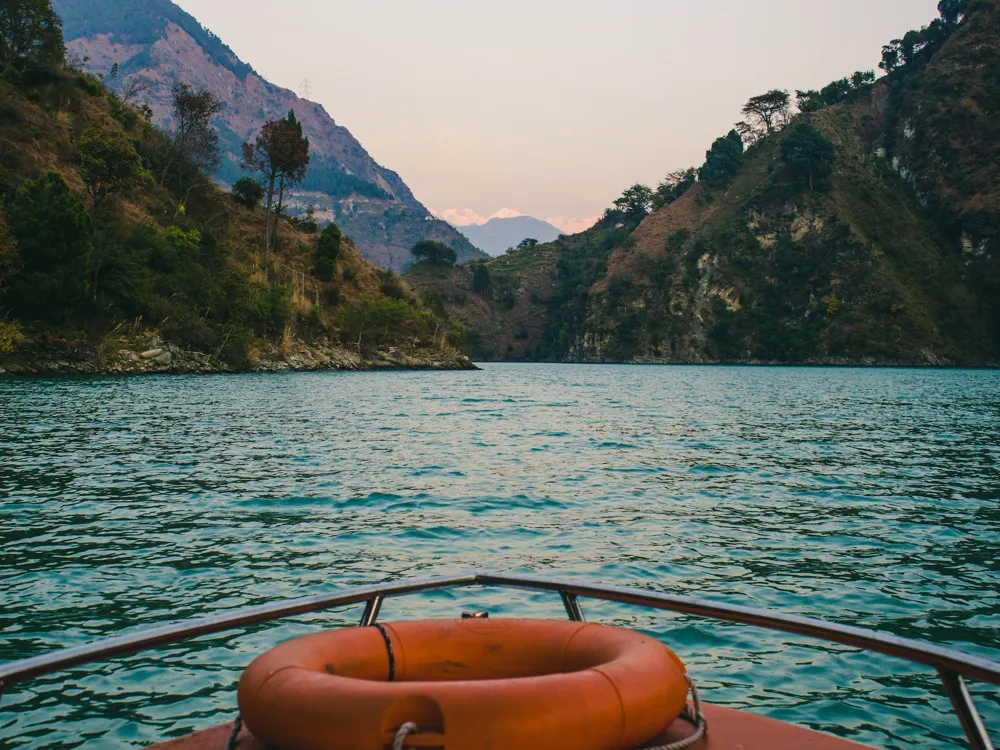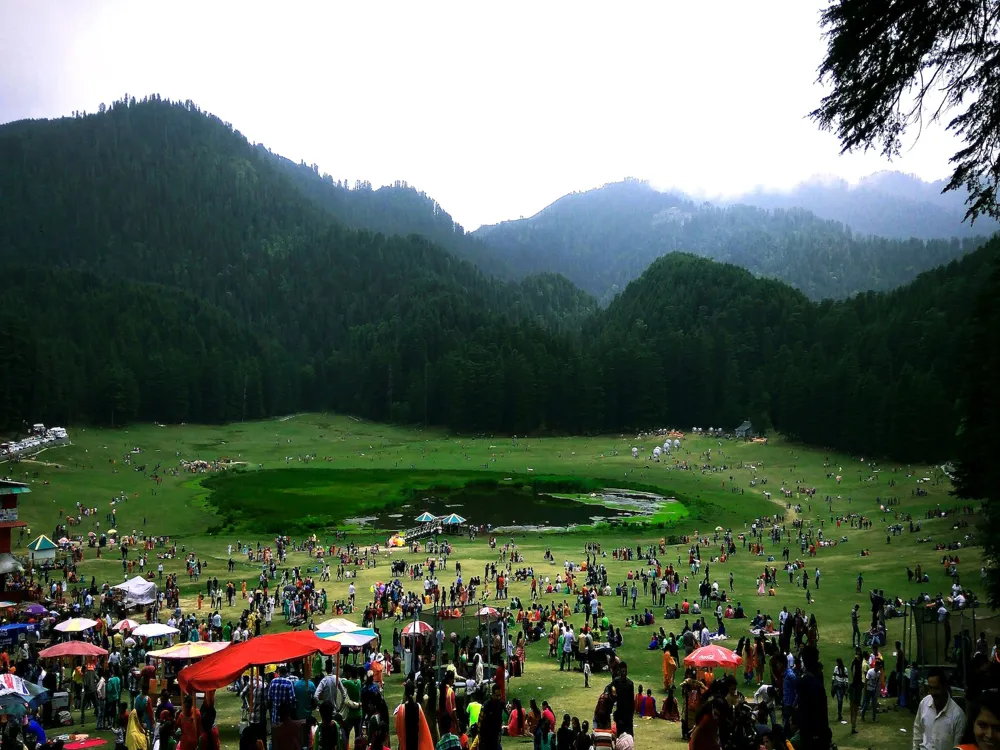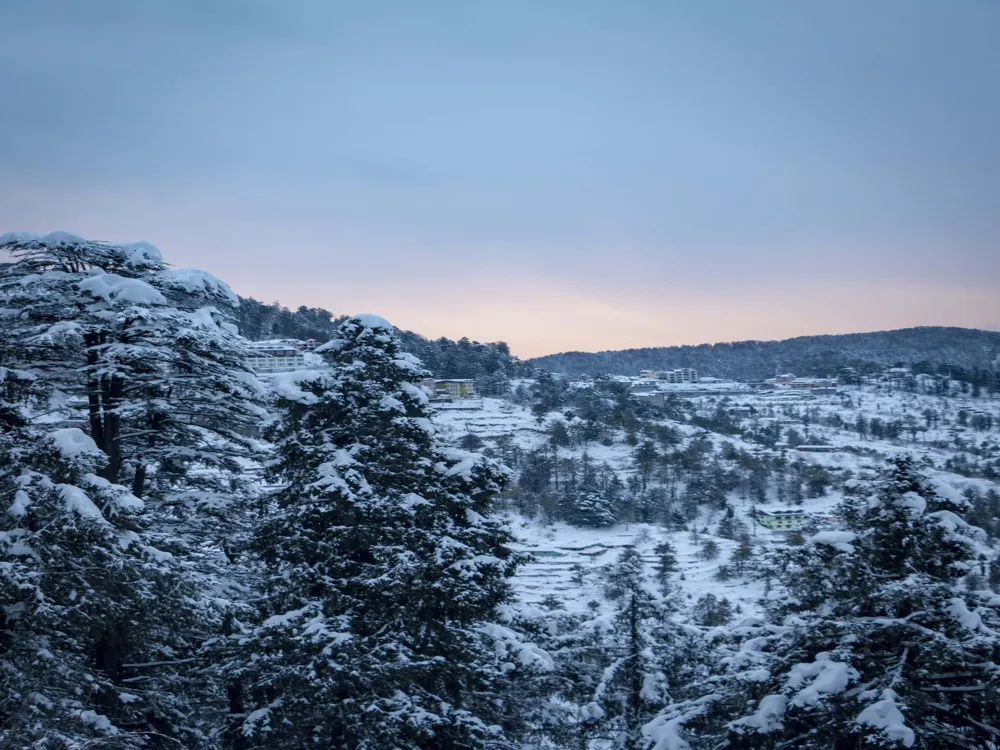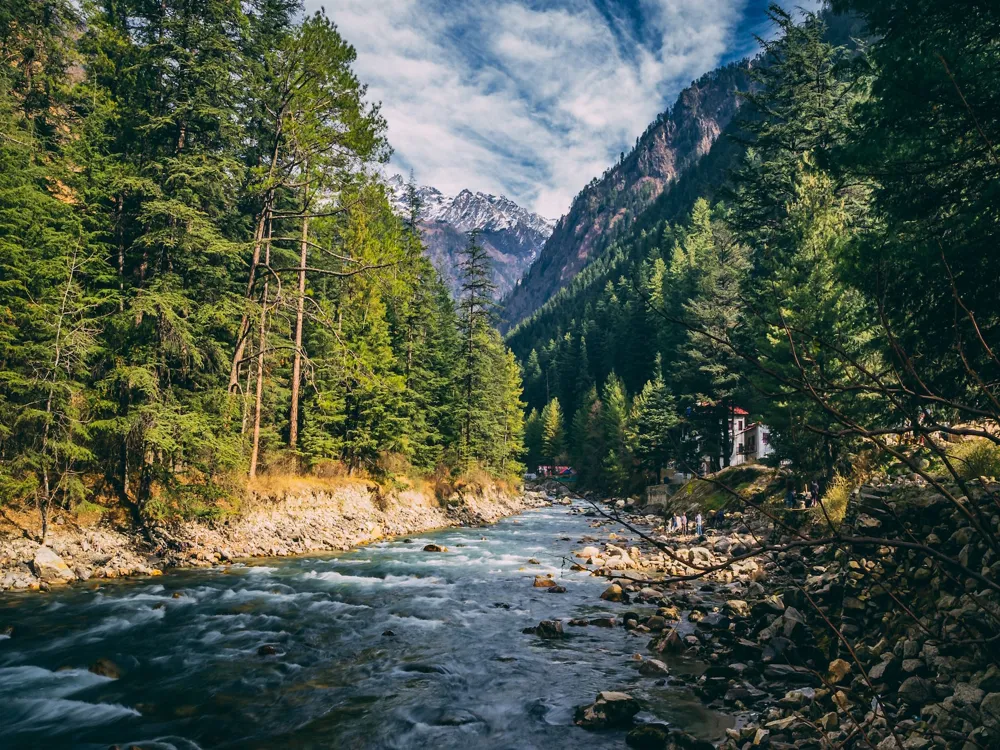The Pong Dam, also known as the Maharana Pratap Sagar, is a monumental feat of engineering located in the scenic Kangra district of Himachal Pradesh, India. Inaugurated in 1976, the dam was built on the Beas River and serves multiple purposes, including hydroelectric power generation, irrigation, and water supply. Spanning an impressive length and height, Pong Dam is not just a symbol of human ingenuity but also a hub of biodiversity and a popular tourist destination. The region surrounding the dam is renowned for its picturesque landscapes, encompassing lush greenery, rolling hills, and an expansive reservoir. The reservoir, one of the largest in India, forms the Maharana Pratap Sagar Lake and has been declared a Ramsar site, signifying its global ecological importance. It supports a rich variety of flora and fauna, including numerous migratory birds, making it a paradise for birdwatchers and nature enthusiasts. Besides its ecological significance, the Pong Dam plays a crucial role in the socio-economic development of the region. It provides irrigation to vast tracts of agricultural land, supports fishing communities, and contributes significantly to the state's power supply. The dam's multi-purpose nature highlights its importance in regional development, balancing ecological preservation with human needs. Visitors to Pong Dam can indulge in a range of activities, from bird watching and boating to exploring nearby attractions such as ancient temples and quaint villages. The dam's proximity to other tourist destinations in Himachal Pradesh, like Dharamshala and Mcleodganj, adds to its allure, making it a must-visit for anyone exploring the region. The architecture of Pong Dam is a testament to modern engineering and design. Constructed as an earth-fill embankment dam, it boasts an impressive structure that withstands the pressures of massive water volumes. The dam's design incorporates state-of-the-art technology and materials, ensuring durability and efficiency in power generation and water management. The dam's core is made of impervious material, which is crucial in preventing water seepage. Surrounding this core are layers of rock and earth, strategically placed to provide stability and strength. The design also includes spillways to control water flow, ensuring safety during high inflow periods. These spillways are not only functional but also add to the aesthetic appeal of the structure. The hydroelectric power station at Pong Dam is another marvel. Equipped with turbines and generators, it harnesses the water's energy to produce electricity. The power station's design optimizes water flow and maximizes energy production, showcasing the blend of functionality and innovation in the dam's overall design. The construction of Pong Dam was a major undertaking, involving extensive planning and execution. It required the collaboration of engineers, architects, environmentalists, and local communities. The result is a structure that not only meets its intended purposes but also blends seamlessly with the surrounding environment, minimizing ecological impact while maximizing utility. The ideal time to visit Pong Dam is from October to March. During these months, the weather is pleasant, and the region sees the arrival of migratory birds, making it perfect for bird watching and outdoor activities. Visitors can engage in various activities such as boating, fishing, bird watching, and picnicking. The reservoir's vast expanse offers ample opportunities for water-based recreation, while the surrounding areas are great for nature walks and photography. There are several accommodation options near Pong Dam, ranging from budget-friendly guesthouses to luxury resorts. Visitors can choose based on their preferences and budget. Trying local Himachali cuisine is a must. The area around Pong Dam offers various eateries serving traditional dishes that are both delicious and unique. Visitors are advised to respect the natural environment. This includes not littering, disturbing the wildlife, or damaging the flora and fauna of the region. Pong Dam is well-connected and easily accessible by various modes of transportation. The nearest airport is Gaggal Airport in Dharamshala, about 50 km away. For those traveling by train, the nearest railway station is in Pathankot, approximately 100 km from the dam. Road connectivity is excellent, with regular bus services and well-maintained roads for those who prefer to drive. The journey to Pong Dam is as scenic as the destination itself, offering stunning views of the Himachal landscape. Read MoreOverview of Pong Dam in Kangra, Himachal Pradesh
Architecture of Pong Dam
Tips When Visiting Pong Dam
Best Time to Visit
Activities to Enjoy
Accommodation Options
Local Cuisine
Respect for Nature
How to Reach Pong Dam
Pong Dam
Kangra
Himachal Pradesh
NaN onwards
View kangra Packages
Weather :
Tags : Dam
Timings : 24 hrs
Time Required : 1 - 2 hrs
Entry Fee : No Entry Fee
Planning a Trip? Ask Your Question
Also Refered As:
Maharana Pratap Sagar
Kangra Travel Packages
View All Packages For Kangra
Top Hotel Collections for Kangra

Private Pool

Luxury Hotels

5-Star Hotels

Pet Friendly
Top Hotels Near Kangra
Other Top Ranking Places In Kangra
View All Places To Visit In kangra
View kangra Packages
Weather :
Tags : Dam
Timings : 24 hrs
Time Required : 1 - 2 hrs
Entry Fee : No Entry Fee
Planning a Trip? Ask Your Question
Also Refered As:
Maharana Pratap Sagar
Kangra Travel Packages
View All Packages For Kangra
Top Hotel Collections for Kangra

Private Pool

Luxury Hotels

5-Star Hotels

Pet Friendly









